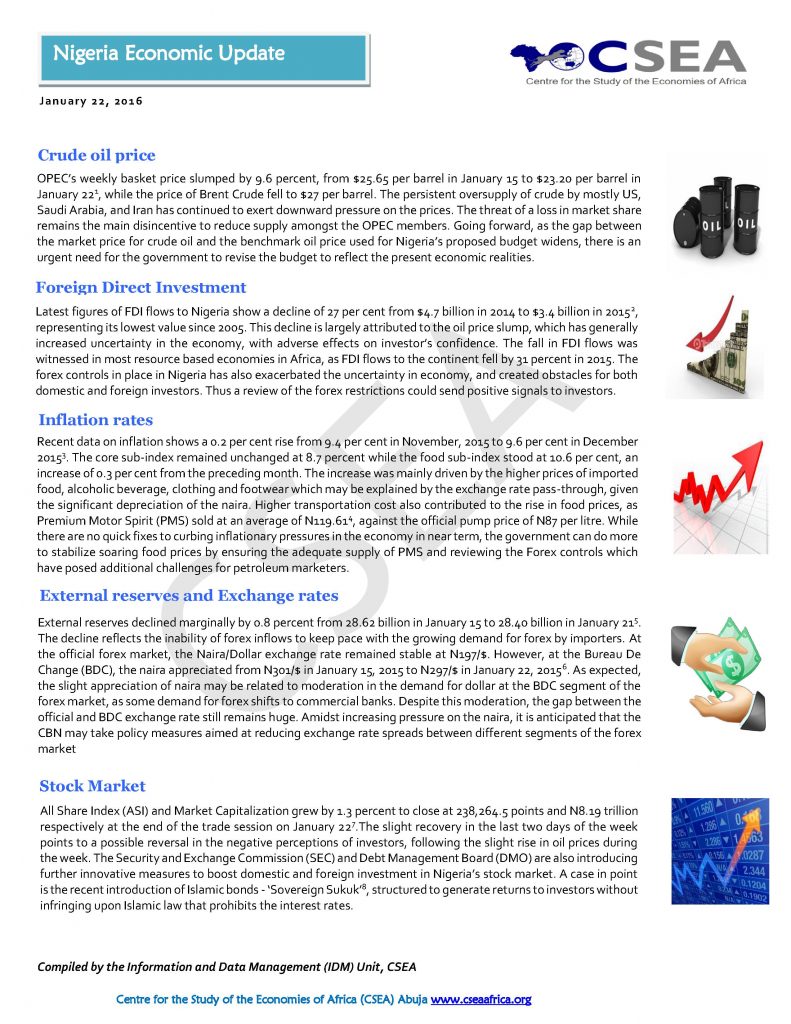Macroeconomic Report & Economic Updates

February 3, 2016
Nigeria Economic Update (Issue 6)
Latest figures of FDI flows to Nigeria show
a decline of 27 per cent from $4.7 billion in 2014 to $3.4 billion in 20152,
representing its lowest value since 2005. This decline is largely attributed to
the oil price slump, which has generally increased uncertainty in the economy,
with adverse effects on investors confidence. The fall in FDI flows was
witnessed in most resource based economies in Africa, as FDI flows to the
continent fell by 31 percent in 2015. The forex controls in place in Nigeria
has also exacerbated the uncertainty in economy, and created obstacles for both
domestic and foreign investors. Thus a review of the forex restrictions could
send positive signals to investors.
